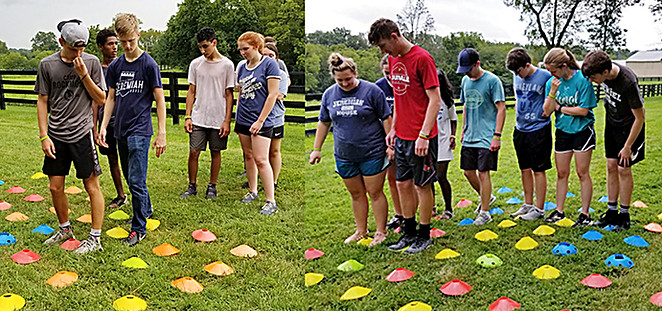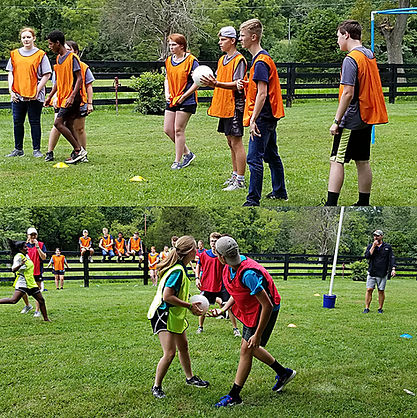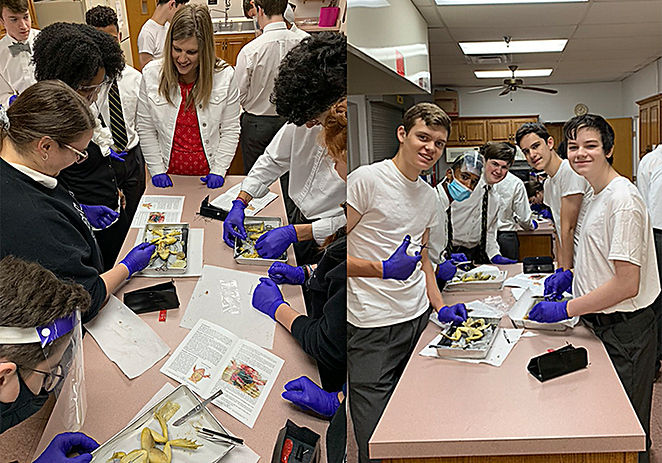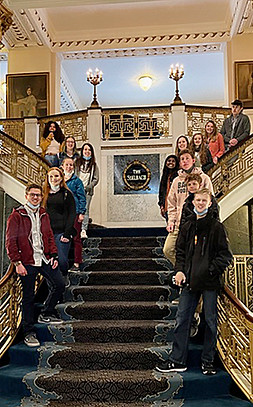
Program Options
2-Day or 3-Day
Family First
SCA homeschooling program options give you the opportunity to evaluate the individual needs of your family and each of your children. You know your child best. Student’s age, temperament, and ability determine time spent on instruction and assignments at home.
“When we have lost our way, the quickest way forward is usually to go home.”
- C.S. Lewis



Schedule*
Our 3-day students complete the work in class that 2-day students complete Friday at home with a parent.
2-Day
(Pre-K - 6th***)
3-Day
(Pre-K - 12th)
Tuesday**
SCA
SCA
Wednesday
Home
Home
Thursday
SCA
SCA
Friday
Home
SCA
Monday
Home
Home
It is vital for parents to grasp and affirm the Classical Christian Educational philosophy practiced by SCA.
Hours and tuition rates are listed on
"Apply Now".
* Either option equates to a full academic year.
** Sayers Classical Academy's academic week begins on Tuesday.
*** 7th grade transitions to a 3 day program
The Trivium
Three Stages
Central to the classical tradition is the the trivium, the three unique stages of learning.
The mastery of something new always moves the learner through each stage: grammar, logic, and rhetoric.
The beauty of the trivium process is its inherant ability to develop the intellectual capabilities which guide the student in using the tools of learning. SCA is mindful of these stages of development and assign the appropriate weight in the design and modification of our curriculum.
Grammar Stage
(foundational thinking)
Grammar students will build a strong foundation, beginning with the basics of spelling, reading, writing and arithmetic, as well as an emphasis upon memorization, observation, and developing logic skills.
PreK - 4th Grade
Although the three parts of the trivium are applied to all learning for all students (regardless of age), they are most often understood in application to the developmental age of the students.
The Foundation
Our Grammar stage lays the foundation for all future studies.
The first stage, grammar, is not the “subject” of grammar; rather, it is the study of the basic facts of different subjects.
-
Children approximately 5 - 10 years old
-
Developmentally receptive to information and will readily memorize
-
Focus is placed on reading, writing, and spelling
-
An elementary study of Latin
-
Basic math skills
-
Developing observation, listening, and memorization skills
-
General overview of history through a biblical worldview
-
Study of the major stories of the Bible
-
Science through observation of the world*
* Science through observation allows students to appreciate the vastness of God’s creation around them. In this way, science fulfills the students' curiosity and deepens their awesome wonder of the world.
The aim at this stage is to give the students the tools to master the elements of language and to develop a general framework of knowledge. Along the way, students are taught and expected to make an application of logic and rhetoric, so as each student matures, mastery of these elements emerges.



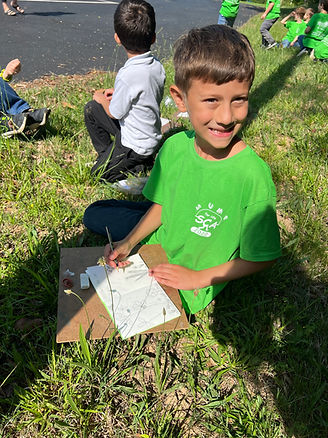


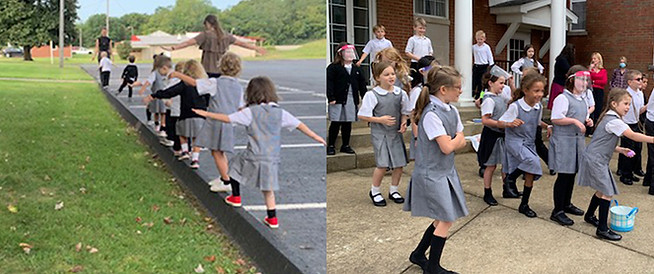





Logic Stage
(formulating arguments)
Students entering the second stage of the trivium, the logic stage, while continuing to build upon the foundational skills, will be taught how to reason from a logical and explicitly Christian perspective. Socratic pedagogy will be used to lead the students in understanding the ordered relationships between ideas and events.
5th - 8th Grade
The Logic stage takes what was memorized and learned in the Grammar Stage and applies it further into each discipline (subject).
The maturing students naturally begin to demonstrate independent or abstract thought.
This stage of development occurs approximately between the ages of 11 - 14.
-
Express sincere questions with a desire to search for the reasons behind long-held principles and truths
-
Practice logical discussion, debate, and drawing correct conclusions supporting them with facts
-
Develop the skills to define their terms, make accurate statements, construct an argument, and begin to see fallacies in the arguments of others
Building upon the foundational skills, our wise tutors recognize these tendencies and utilize them as a tool to mold and to shape their students’ minds. This molding of thought and communication skills is not to promote in students a superior, critical, or negative attitude, but to cultivate discerning and thoughtful students, students who know when to follow and when to lead.
Students enjoy experiencing
-
Different teachers
-
Changing classes
-
The fruits of classical thinking
-
Twice a Week: Math, Science/Logic, Writing and Literature, Latin
-
Once a Week: Strings, Choir, Logic, Geography, History



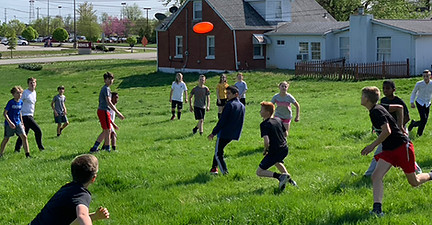
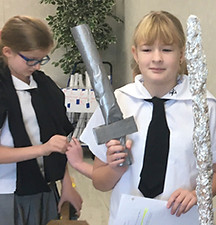

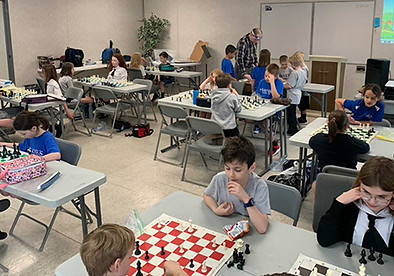

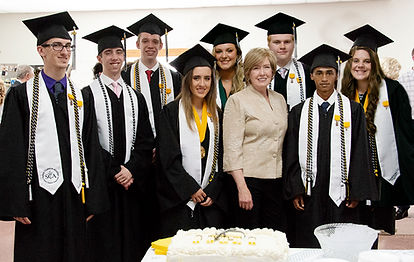
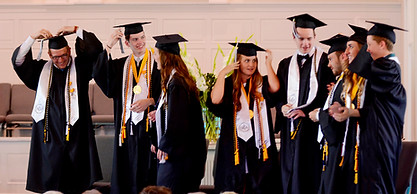
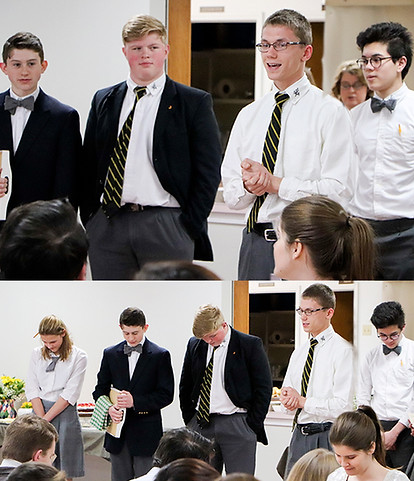
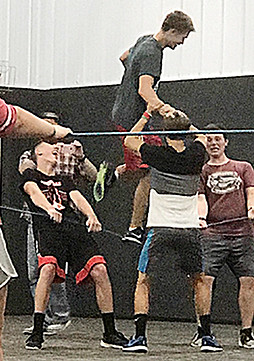
Rheteric
(expressing complex concepts)
Rhetoric students will continue learning under Socratic pedagogy to complete a multi-year study of classical rhetoric and will be given the opportunity to explore and evaluate original and profound ideas.
9th - 12th Grade
Sayers Classical Academy (SCA) has a longstanding commitment to deliver an integrated and comprehensive learning approach through Classical Christian Education with a family and Christ-centered focus.
Our Program Options detail the days of our 3-day academic week. Hours and tuition cost may be found on our tuition page.
The Rhetoric program is the study of writing and speaking. Students are immersed in an interdisciplinary study of the natural integration of all bodies of knowledge which find their unity in Christ “in whom are hidden all the treasures of wisdom and knowledge” (Colossians 2:3)
Reading Selections & Assignments
The maturing student (14+ ) begins to master the skills of language and logic. The selection of reading material and assignments are designed to show the connection between a host of disciplines including:
-
Language arts
-
Latin (grammar and translation)
-
History (with attention to primary sources)
-
Literature (reading great books)
-
Scripture
-
Speech
-
Debate
-
Logic (the art of argument)
-
Philosophy
-
Systematic Theology (11th or 12th)
-
Worldview (11th or 12th)
* Sayers Classical Academy has a 4-year academic rotation. The year your child begins, they will join the current rotation.
In addition to the integrated studies of the Rhetoric program, students will also take:
-
Math
-
Science (Biology, Anatomy & Physiology, Chemistry, Physics)
-
Atelier Art Program (history and drawing)
-
Choir
-
Senior Thesis
-
Senior Capstone Project
Rhetoric Goals
-
As the rhetoric student advances in the trivium, they can use language, both written and spoken, eloquently and persuasively, to express what they think; a natural yearning for young adults.
-
Students emerge as independent thinkers and communicators
-
With God’s grace and good guidance this stage should show the beginnings of creativeness, a reaching out towards a synthesis of what it already knows, and a deliberate eagerness to know and do one thing in preference to all others.
-
As a Christian, the student will want to use their knowledge to further advance the Kingdom of God, their primary goal being to persuade others to follow Christ.
-
For the Christian, a life of holiness and sacrifice will always speak louder than words. However, when such a life has been properly equipped to use the great tools of communication - persuasive speech and writing - God’s glory is known all the more.
